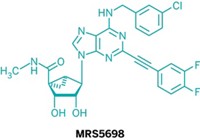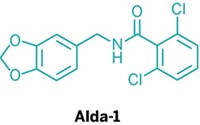Advertisement
Grab your lab coat. Let's get started
Welcome!
Welcome!
Create an account below to get 6 C&EN articles per month, receive newsletters and more - all free.
It seems this is your first time logging in online. Please enter the following information to continue.
As an ACS member you automatically get access to this site. All we need is few more details to create your reading experience.
Not you? Sign in with a different account.
Not you? Sign in with a different account.
ERROR 1
ERROR 1
ERROR 2
ERROR 2
ERROR 2
ERROR 2
ERROR 2
Password and Confirm password must match.
If you have an ACS member number, please enter it here so we can link this account to your membership. (optional)
ERROR 2
ACS values your privacy. By submitting your information, you are gaining access to C&EN and subscribing to our weekly newsletter. We use the information you provide to make your reading experience better, and we will never sell your data to third party members.
Pharmaceuticals
Brain Injury Triggers Lung Damage
Researchers uncover molecular reason why brain trauma sufferers are often poor donors for lung transplants
by Lauren K. Wolf
September 8, 2014
| A version of this story appeared in
Volume 92, Issue 36
When a patient needs a lung transplant, chances are the donated organ will come from a person who suffered traumatic brain injury. Although the lungs of these donors seem intact, doctors have noticed that the organs are often leaky and inflamed. As a result, only 15 to 20% of the lungs are viable for transplant. To better understand why brain damage leads to lung damage, David S. Wilkes of Indiana University School of Medicine and coworkers focused on the small protein HMGB1. The team believes that brain injury triggers the release of HMGB1, which slips through the blood-brain barrier and travel to the lungs. There, the protein binds to a receptor known as RAGE, setting off an inflammatory response. The researchers tested their hypothesis by genetically engineering mice to lack RAGE and then inducing brain injuries in these rodents as well as in a group of otherwise healthy mice. The RAGE-less mice did not develop as much lung damage as the control group (Sci. Transl. Med. 2014, DOI: 10.1126/scitranslmed.3009443). The researchers also injected healthy mice with an antibody that deactivates HMGB1 just before giving the rodents a brain injury. These animals, too, sustained minimal lung damage.





Join the conversation
Contact the reporter
Submit a Letter to the Editor for publication
Engage with us on Twitter